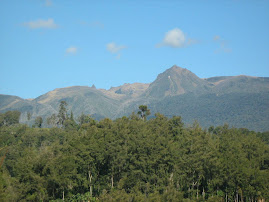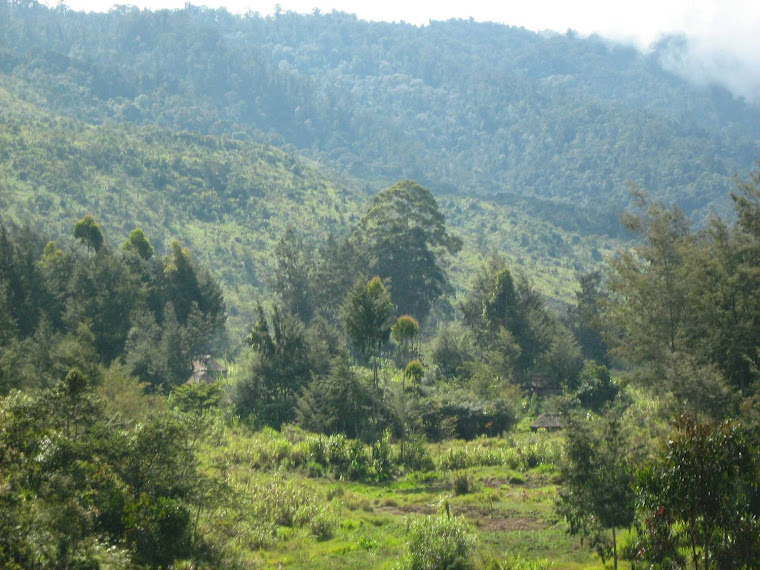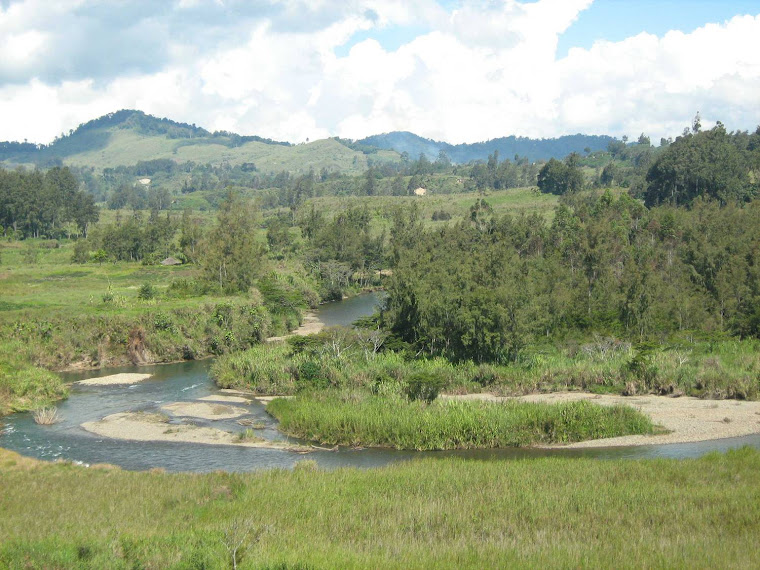U.S, Japan and Australia with hidden motives?
By Mathew Yakai in Changchun, China
ACADEMIAN David Kang purported that threats to the United States in East Asia do not arise from the traditional sources of great powers rivalry and conflict, rather arise from smallest and weakest states like North Korea and Iran.
But the break through in the six party talks has made North Korea to open up recently, yet there is more to be done.
The next “axis of evil”, Iran, is closely monitored so it does not build nuclear plant that would enable for uranium enrichment program.
These threats are not direct, but instead they arise indirectly, if they sell their alleged nuclear weapons to Middle Eastern terrorists group that would use against the United States.
The terrorists can also use these nuclear weapons against U.S allies like Japan, Australia, Britain and others, for supporting her.
U.S. does not face any direct security threats from the East Asian countries. Yet, U.S. interests in the region are as much economic as they are military.
Economic growth, not military conflict, has been the hallmark of the modern East Asian region and U.S. economic ties to the region are deep and growing deeper, including its allies.
But the recent overwhelming “reengagement” by U.S. Japan and traditionally Australia in Oceania is not only interesting but surprising given the fact that all these countries are strong allies, spreading all over the region with their respective economic strengths.
Since the end of Cold War, U.S. closed its small consular post in Solomon Islands, reduces some of its aid program outreach, and no longer maintains a separate Pacific Islands office in the State Department.
In March 2007, a senior State Department official admitted that “the nations of the Pacific have not always received either adequate diplomatic attention or development assistance” and promised a reversal of the trend.
Bush Administration coincidently pledged to “re-engage” with the region and declared last year (2007) the “Year of the Pacific”.
Consequently, Washington’s diplomacy has increased in Oceania with the re-establishment of its Fulbright Scholarship to Pacific Islanders.
U.S. through its Pacific Partnership 2008 program will see a humanitarian civic assistance mission aimed at building international relations with partner nations will visit PNG next month, U.S. embassy in Port Moresby confirmed as reported by The National.
Pacific Partnership in PNG would include the deployment of combined team of U.S. navy personnel and PNG Defence Force engineers to Popodetta this month (July 2008), followed by the hospital ship USNS Mercy’s 13-day visit to Port Moresby next month (August 2008).
This is one of U.S major Oceania diplomacy since the last 30 years after the end of Cold War.
Since Bush became the President, neither him nor his secretary visited any Pacific Island countries, depicting how insignificant these countries are.
But what is very obvious is that Washington controls the region through Canberra, Wellington, Tokyo and United Kingdom.
Recently, Prime Minister Sir Michael Somare acknowledged U.S. army presence in Guam and told Parliament that if U.S. moves its army from Philippines to Guam then PNG stands to benefit from a tune of K20 billion by supplying agricultural produces, reported by The National.
Morobe Governor Luther Wenge who returned from U.S. earlier this year (2008) offered his old Lae airport for U.S. to erect its military base, the first in Oceania apart from Guam, which would have a proximity to any possible enemies that only Wenge knows.
Wenge attempted to attract U.S. capital and create employment for his people but he should also question… “Why such a superpower on PNG soil when Waigani’s foreign policy is, “friend to all and enemy to none”?
Both Wenge and Sir Somare suggested that PNG stands to benefit but they do not see the diplomatic repercussion and the long term relationship with PNG neighbors, especially Indonesia, the largest Muslim state which PNG shares its land border with and China, which has brought a lot of tangible development to PNG when U.S. packed up and left after the Cold War.
When one’s sovereignty is negotiated for military purposes then it must be made sure its foreign policy is not jeopardized…but in this case, both Sir Somare and Wenge did that.
The story does not end there! Recently, Japan, the strong ally of U.S. has offered to be part of the Australian-led regional assistance mission to Solomon Islands, RAMSI.
Interestingly, Japans’ attempt to join RAMSI was discussed with Canberra in Tokyo, and Australia brought it up during the Pacific Islands Foreign Affair Ministers meeting recently.
Though Japan is an important bilateral and development partner, not only to Solomon Islands but to all the Pacific Island countries, its timing and current “re-engagement” policy by U.S. in the region must be seriously considered by the regional governments.
Solomon’s Prime Minister Dr. Derek Sikua has called for caution and says he’s seeking clarification on the offer, but must go further to question why Japan, when the regional “energy” is sufficient with New Zealand and Australia taking the lead.
Besides, the situation in Honiara is back to normal after the inquiry into Honiara’s 2006 Chinatown riots were found to have been politically motivated.
Australian newspaper The Age says the Sikua government has officially apologized to the Chinese community for the riots, which took place after Solomons’ MPs elected Snyder Rini as prime minister following national polls.
Regional leaders must question what Japan will offer and whether its involvement is a directive from Washington through Canberra.
Though Japan’s Pacifist Constitution Article 9 prohibits having its own military force, Japan has been very instrumental with logistics during the Afghanistan and now Iraq unilateral wars by U.S.
Canberra supported the war, literally for oil, against Iraq without the consent of the Pacific Island Regional Forum, showing how they can bully the Island states.
Now all are exhausted. Canberra is withdrawing its army, and U.S. is planning to do as well when the new president gets in, but depends on the situation on the ground.
Pacific Island countries have not fallen into the hands of terrorists, or likely to do so, though they have been termed to be heading towards the “brink of being failed states”.
The Iraqi government, though in power, the resistance is still on, and that’s where U.S. and Japan should focus their resources to protect the vulnerable, the women, children and the old.
Because there is no desperation in Oceania, the Pacific Island leaders would agree that U.S. and its allies should complete their mission in Iraq thoroughly.
Washington Post independently estimates the loss of civilian from the Iraq war to at least 100,000 Iraqi, because of the U.S. invasion.
Wikipedia – The Free Encyclopedia online states that the Iraqi health Ministry survey shows that 151,000 violent deaths out of 400,000 excesses deaths due to the war from march 2003 to June 2006, Lancet survey shows 601,027 violent deaths out of 654,965 excess deaths from March 2003 to June 2006 and Opinion Research Business survey shows 1,033,000 violent deaths as a result of the conflict from march 2003 to August 2007.
The mission is incomplete and the death tally will still increase.
But U.S. and Japan’s move to Oceania coincidently, though Japan was there before, should stimulate a lot of debate in the region, including our political leaders.
International situation reveals that the recent trend in the Pacific by both Japan and U.S. is to contain China’s cordial bilateral relationship with the Island countries.
To go further, the two countries try to contain China, when Bijing tries to be genuine partner in terms of economic development which the developing countries have benefited a lot since the 1970’s.
The ambition by U.S and Japan must be stopped by the island leaders because what Japan and U.S. are attempting at is directly interfering in regional sovereignty by denying what China has to offer.
Sufficiently, Canberra has a growing conflict between the material benefits associated with Australia’s deepening relationship with Beijing, and the broad security concerns it shares with the U.S.
China is making its new, more robust, presence felt around the globe, including in Oceania and the benefits to the Island countries have been overwhelming.
Yet, China’s immediate interest are not much different from those of other powers active in the region, such as U.S., Japan, New Zealand, and Australia.
The major difference is that these powers are well established in Oceania while China is not.
Most other influential actors have engaged with Pacific Islands societies for more than a century, initially as colonists.
And the drastic move by Japan and U.S. will have tremendous economic set back in the region, and this must be seriously considered by the island countries.
Cooperation between Australia, Japan, U.S. and China in Oceania for the Island countries economic development is welcome, but not a power politics, the replica of “Cold War”.
China’s foreign policy always remains, “non interference in another countries sovereignty and win-win diplomacy”.
What is U.S., Japan and Australia’s economic policy towards Oceania, given that they have set precedence already?
Should Oceania trust them to be good “great powers”, despite the fact that their hands are still covered with Iraqi’s blood?
Anyway, at least for the moment, China appears to broaden the menu of options for these island states, whose leaders are well accustomed to operating in a world controlled by great powers.
Note: “Asia-Pacific Perspective: China +” looks at Chinese society, culture, economy, governance and China’s role within the Asia-Pacific region and the world over. It mainly focuses on how Oceania can learn from China’s experience. The writer is a PNG student in China
American movie include Fijians as cast and crew
6 years ago







